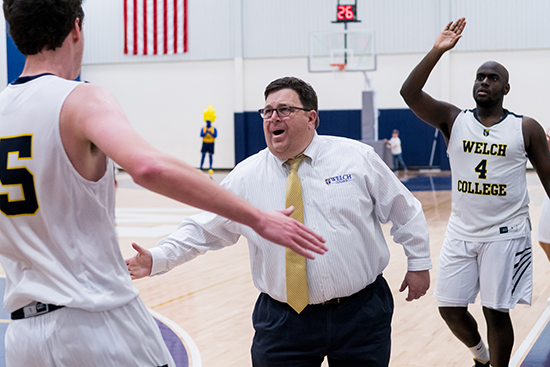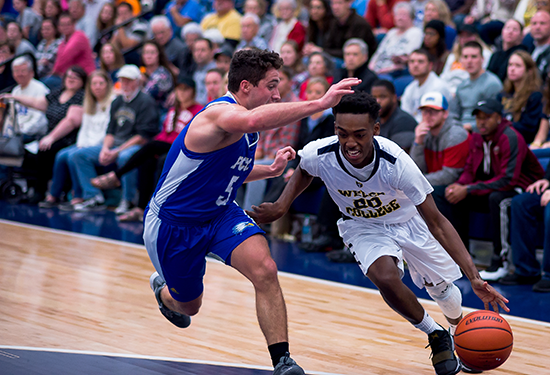
December 2019 -January 2020
On Assignment
------------------
|





Coaching the Big Game
By Greg Fawbush
In 24 years of coaching, God has allowed me to coach many big games. The ten minutes before the game are always my favorite time. The adrenaline starts flowing, and the game plan is reviewed. It is also the time I always consider one big question: Did I do enough to prepare my players?
I ask myself this question more often these days. I believe I am coaching a much bigger game now, a game with much bigger rewards and consequences than those on a scoreboard. This game is “the game of life.” God has given me the opportunity to be part of the lives of 80-plus student athletes at Welch College. These athletes will enter many different occupations after leaving Welch, but they all will have one thing in common—life. Therefore, the question must be asked, “Am I preparing them for the game of life?”
Life has many of the same characteristics as a traditional ballgame. It has a beginning and an end. Sometimes, my students will win and other times they will lose. They will enjoy success and endure failure, all in a matter of minutes. As their mentor, it is my job to prepare them for all of these events. The same principles used to prepare for a big ballgame can be used to prepare young people for life.
1. �The gameplan must be implemented before
the game starts.
As a coach, I learned the hard way it is too late to prepare after the game has started. Success is found in thorough advance preparatio-n. This is why coaches stress details in daily practice. As a mentor, this same principle must be followed. Developing a pattern of daily biblical devotion, a strong meaningful prayer life, commitment to the local church, and partnership with other like-minded believers will aid students in their preparation for anything the future holds. As a mentor, it is crucial to prepare myself before I try to help prepare others for their future.

2. �Determine the non-negotiables before the game starts.
Adjustments must be made during any game. However, some non-negotiables should be established before the game starts. These non-negotiables identify our values—what has the highest importance. We must not compromise on certain values. As I work with the student-athletes, I have identified these non-negotiables in my life. These values must be demonstrated in my daily walk with Christ so my student-athletes can observe them.
3. Trust your preparation.
Many hours of preparation go into getting ready for big games—game film study, conversations with other coaches, and time spent alone thinking through the process. However, I have learned over the years the best preparation for big games is experience. Experience includes both failures and successes. It is important to identify the teachable moments God allows into our lives. If we let God teach us, we can use every part of our history, good and bad, to prepare others for life. We can trust the preparation God has brought into our lives.
I have won some big games, and I certainly have lost some big games. Thankfully, my joy and my job security do not depend upon the outcome of ballgames. Coaching student-athletes for life has far greater implications than any score in the record books. The game of life is one they cannot afford to lose.
About the Writer: Greg Fawbush is athletic director and men’s basketball coach at Welch College. He also pastors Cane Ridge FWB Church in Nolensville, Tennessee. Learn more about athletics at Welch College: www.welch.edu/athletics.
|
|

